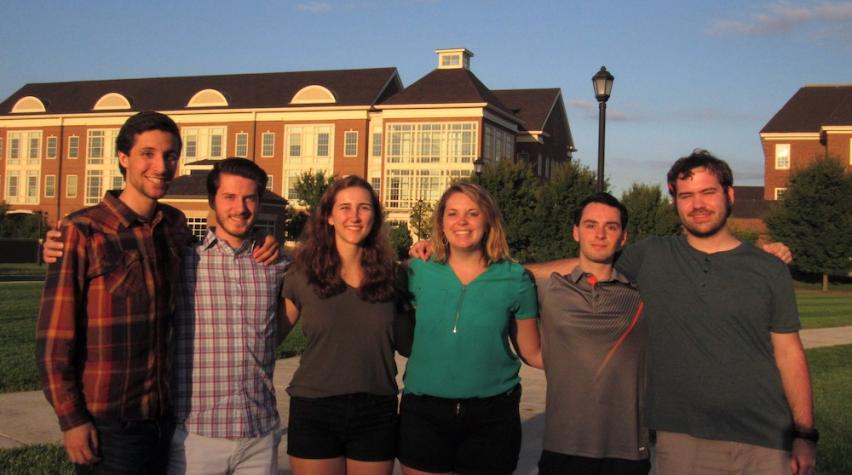
AIChE Chemical Engineering for Good Challenge, also known as ACE4G, is a competition to encourage chemical engineering students and their partners to consider how chemical engineering know-how can be applied in an appropriate way on a small scale to improve the quality of life for communities in the developing world.
Miami University's AIChE Student Chapter won first place in last year's competition with their submission "Continuous Flow Solar Sterilization Module for a Water Treatment Plant in Kabingo, Uganda."
We caught up with their student chapter president, Luay Ahmed, to learn more about their competition idea, what inspired them to enter the competition, and what they learned in the process.
How did you come up with the idea for your competition submission, "Continuous Flow Solar Sterilization Module for a Water Treatment Plant in Kabingo, Uganda"?
The biggest issue when designing systems in rural communities is sustainability. Questions like "where is the energy going to come from?" and "what materials do we have access to?" are major design constrictions.
Converting solar light into electricity is very inefficient, so we had the idea to take advantage of irradiation directly - basically using the sun to microwave the bacteria to bits rather than using electricity and chemicals to osmose and sterilize water. Appending this sun-powered sterilization reactor the particle filtration system already installed by EWB Miami would cover both water quality and potability while allowing continuous pumping from boreholes rather than batch sterilization in tanks.
Do you think that the technology you recommended could be implemented on a larger scale?
Large-scale implementation of this technology has seen some work by various companies; however, they are primarily demonstrative. Similar to power generation with solar panels, this technology's efficacy is dependent on geographical location and weather conditions.
Issues with scale-up to the size of towns and cities rather than just villages would include the vast tracts of land you would need to process those vast quantities of water. In its current state, I would not recommend using this beyond meeting the drinking needs of smaller communities.
What inspired you to enter this competition?
I am fond of the Engineers Without Borders organization at Miami University. I have worked on their projects in the past, so having my two favorite organizations (EWB and AIChE) work together to compile research for this technology was extremely rewarding.
What were some of the highlights of working on this competition with your team members? Did you learn anything new in this process?
The greatest highlight of this project was applying concepts learned in class to design a system none of the team members thought about before for humanitarian purposes. Thinking about how to design a system for the Kabingo community that would allow them to utilize their resources and benefit their lives gave us an appreciation for what our education allows us in the US.
This project also increased the connectivity and strengthened our sense of community between organizations within Miami University's College of Engineering and its greater community.
2019 ACE4G Challenge
Registration for the 2019 ACE4G Challenge is now open. AIChE student chapters are strongly encouraged to partner with organizations, such as Engineers Without Borders, with experience applying appropriate technology on micro-scale projects in small, technically unsophisticated communities.
Learn more about the competition and register now.
Connect with Miami University's student chapter president Luay Ahmed.


